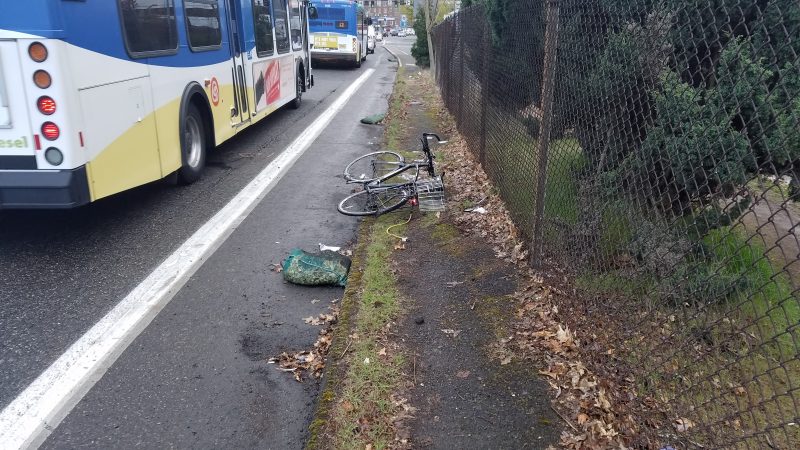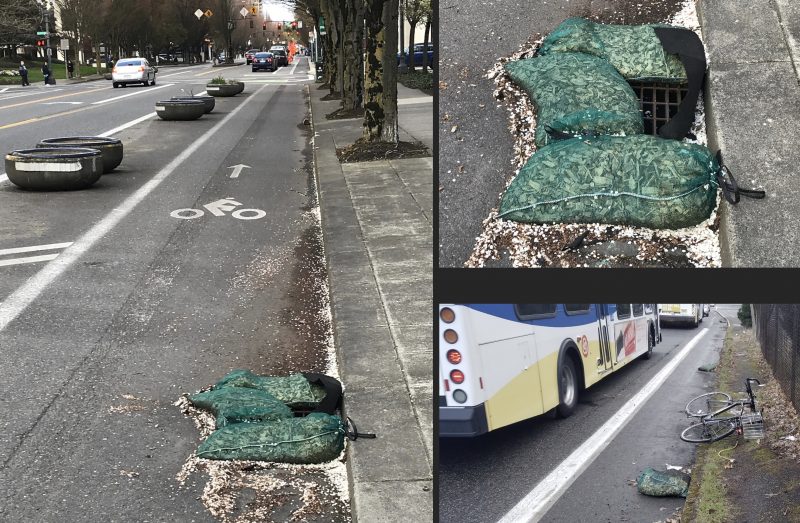
(Photos courtesy readers Steve and Ben)
“He slammed into one of these, fell to the ground, and tore open a nasty gash in his elbow that required a number of stitches at the ER.”
— Steve N.
We have a precious small amount of high-quality, smooth, clean and dedicated space for cycling. That’s why when people willfully encroach and degrade that space, we feel the need to raise an alarm about it.
Case in point are these bags we often see placed around storm drains. The drains themselves are often hazards for bicycle riders: They have grooves that can catch tires and they’re often set below-grade — meaning your bike drops down when you go over them. Most people avoid riding over storm drains, even though they often take up a foot or two of what’s already a relatively narrow space for cycling.
Add these bulky bags — which are often called bio-bags — and you’ve got real hazard.
The bags are used to manage stormwater runoff and control erosion and they are usually full of hard wood chips.
Reader Steve N. wrote to us last week after he saw them on NE Multnomah Boulevard in the Lloyd District. “Construction crews have placed some bio-bags directly in the bike lane,” he wrote, “which are challenging to see in daylight and nearly invisible at night, thereby creating a dangerous condition.”
Advertisement
Steve was spurred to contact us because his co-worker Ben crashed on these exact type of bags while cycling into downtown via SW 4th Avenue (by way of Barbur). Here’s what happened: “While merging into the traffic lane, he slammed into one of these, fell to the ground, and tore open a nasty gash in his elbow that required a number of stitches at the ER.”
The image below is where Ben hit the bag. Believe it or not this location (northbound on SW 4th just past the I-405 overpass) is a major gateway into downtown. Making matters worse is the fact that this bike lane is ridiculously narrow at only 3-4 feet wide…
And here’s the damage to Ben’s arm…
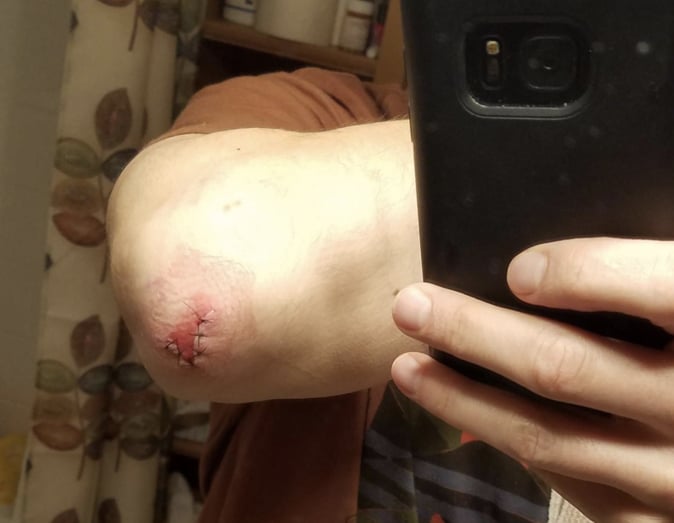
And the damage to his bike…
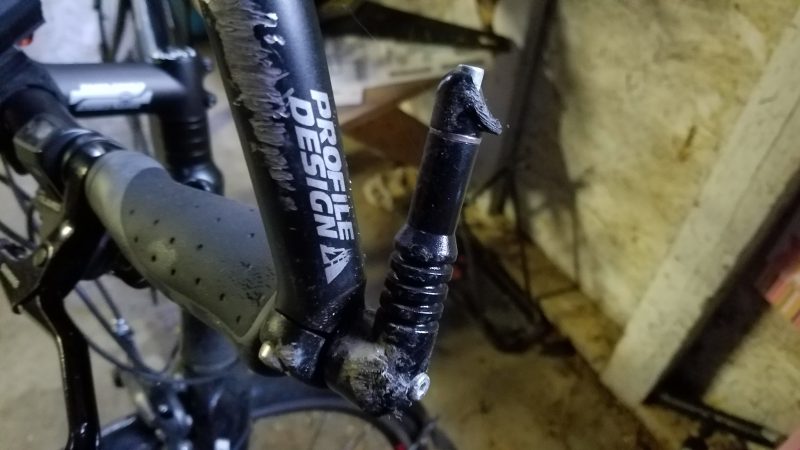
Ben said the bag he hit was in the middle of the bike lane. “This could have ended much worse for me,” Ben emailed, “if I had been going a bit faster or if the driver behind me had been less attentive.”
In Portland, contractors are responsible for taking “erosion control measures” during their projects. The Bureau of Development Services offers detailed guidelines on what types of bags are required and how to install them properly. Unfortunately, it appears as though these bags are completely within those guidelines.
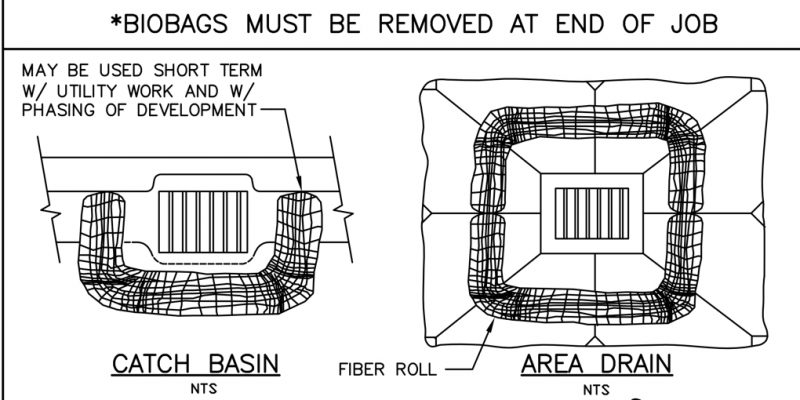

There’s another method that uses only fabric (photo, right) and is much less intrusive, but it appears BDS only requires that method for use on a temporary, 24-hour basis.
Steve and Ben happen to be civil engineers, so they should be good advocates to try and figure out a solution to this problem. They also plan to contact the City of Portland about their experiences. We’ll report back when — or if — they make any progress.
— Jonathan Maus: (503) 706-8804, @jonathan_maus on Twitter and jonathan@bikeportland.org
Never miss a story. Sign-up for the daily BP Headlines email.
BikePortland needs your support.


